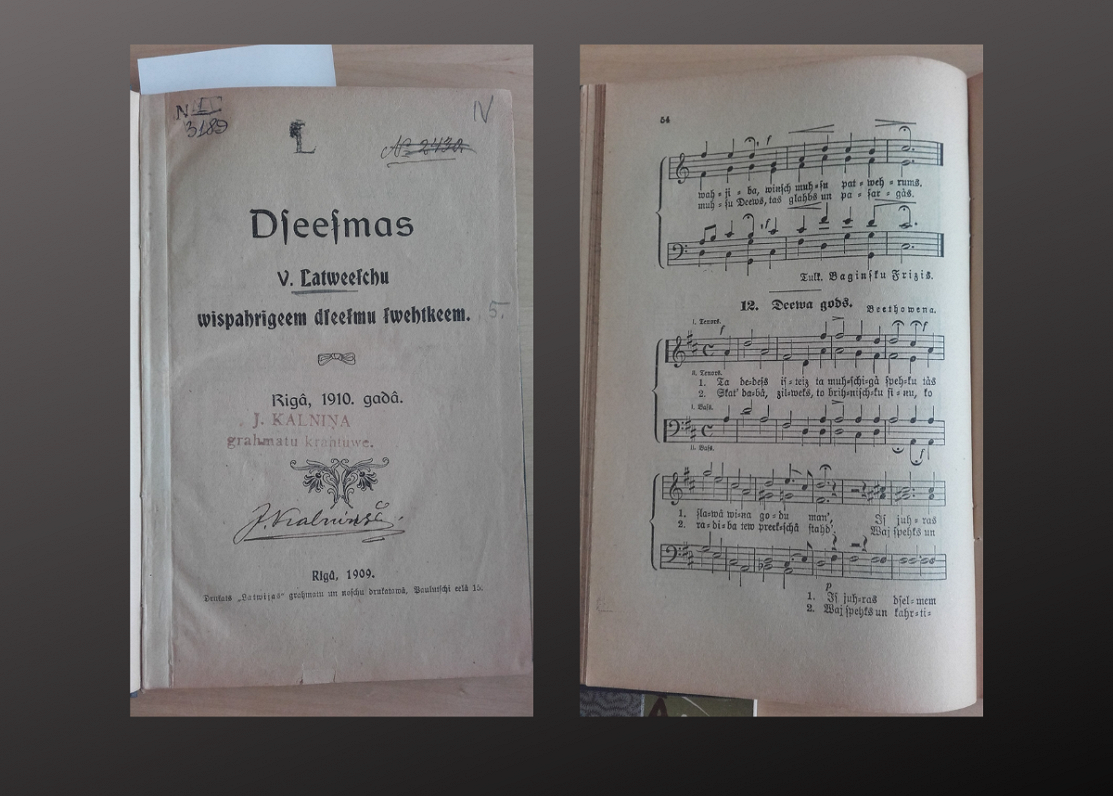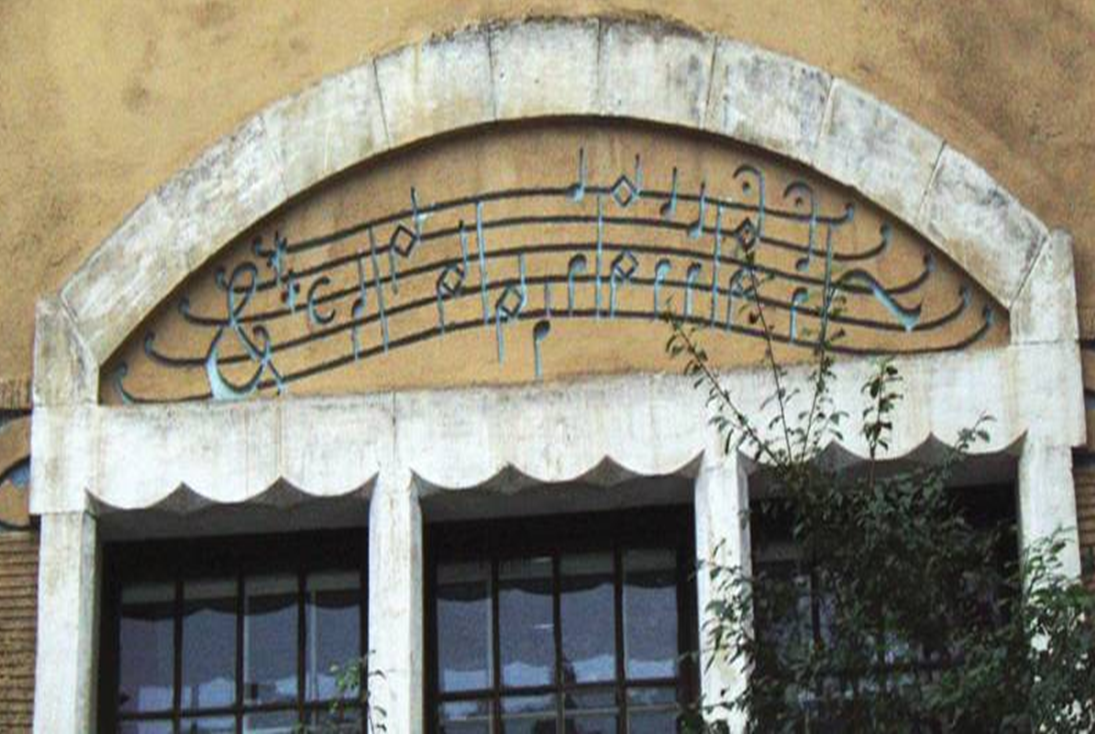This building, where the Latvian Medical Association is now located, was built in 1905 by Riga architect Augusts Reinbergs (1860–1908) as a private apartment block. Looking up, we can read a line of poetry from Friedrich Schiller's "Songs of the Bell" (1799): "Arbeit ist des Bürgers Zierde" - in translation "Work is the citizen's ornament" at the top of the facade facing the courtyard.
Below, above one of the windows, a musical phrase by Ludwig van Beethoven (1770–1827) is carved into the wall.
In the summer, this line of notes is usually obscured by the birch tree in the yard, but the message remains: it is the first four bars of Beethoven's "Glory to God" or "Die Ehre Gottes aus der Natur" (The glory of God from Nature) with text by the 18th-century German poet Christian Fürchtegott Gellert (1715–1769).
So why was this song so important to the builder of the house?
Beethoven's six so-called Gellert songs were published in 1803, but their first drafts appeared at the end of the 18th century when the composer's hearing was rapidly deteriorating. During this desperate time, he got to know Gellert's "Spiritual Odes and Songs" (1757), which had already gained a wide readership in German society. Gellert's poetry appealed to the composer with its spiritual universalism, motifs of Christian reconciliation and at the same time man's reverence for the world created by God.
In the second half of the 19th century, the song became popular in German men's singing societies. It was also heard in the Baltics: at the German-Baltic song festivals in Rīga in 1861 and in Tallinn in 1866, at the Estonian First (1869), Second (1879), Fourth (1891) song festivals in Tartu, the Latvian First (1873) and Fifth (1910) song festivals – the last led by chief conductor Jāzeps Vītols and with Alfreds Kalniņš playing the organ.

Could Augusts Reinbergs, who built the house, be in any way connected to this part of music history? It is known that while studying at the Riga Polytechnic, he was accepted into the German-Baltic students' corporation "Rubonia", and liked to sing in the corporation choir. However, it is possible that the quoted song has a purely symbolic meaning.
Schiller and Beethoven, not being thematically related to each other in this specific case, nevertheless are known to all music-lovers from the "Ode to Joy".
It will probably not be unimportant to add that Reinbergs' wife Agnes (née Schröder, 1864–1943), whom he married during his years as an architect in St. Petersburg, was the daughter of the owner of the prominent piano factory CM Schröder. At the beginning of the 20th century, it was the largest piano-making firm in the Russian Empire.
You can listen to Latvian Radio's program on this subject below.






























